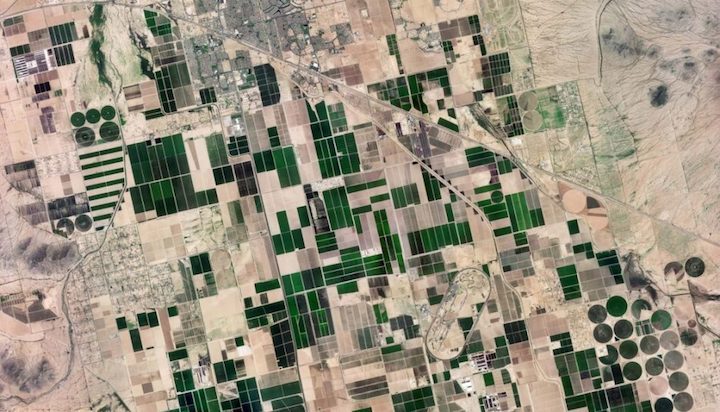3.03.2018
The country is taking the lead to build an international space network to share climate change data.

France is building an international network for space agencies to share climate change data in the future, Mathieu Weiss, Managing Director of the space agency’s Liaison Office, has revealed to GovInsider. Climate surveillance is the “most critical area” of work for the Centre national d’études spatiales (CNES), he says.
Targets to cut emissions are currently based on government calculations of the number of cars and factories in their countries – providing only a “rough estimate”, rather than a precise measurement. Satellites are the only way to accurately and continuously measure greenhouse gas emissions on a global scale, Weiss believes.
“If we are not able to diagnose what is happening, we cannot propose any solutions,” he explains.
A UN for space
In December, France brought together the heads of the world’s space agencies to set up the Space Climate Observatory. Members will share with each other Earth observation data collected by their own satellites, and make it available to the international scientific community. “It is a little bit like a United Nations of space,” he says.
The observatory will allow, for the first time, a repository of accurate and independent data on climate change which can be validated across multiple countries, Weiss adds. “We will have accuracy that is unmatched until today.”
But for this data to be globally accepted and uncontested, every space agency needs to be on board – including the newer ones. In February, France signed a space exploration agreement with the United Arab Emirates, which includes a joint mission to build climate surveillance satellites, Weiss says.
France has also been working with the older space agencies to collect climate change data, he continues. With the UK, it is measuring carbon dioxide, and with Germany, it is building a satellite to measure methane. Meanwhile, a joint satellite project with China will help monitor waves and winds.
Supporting new space efforts

The most exciting movement in the space industry today is the growth of new private sector companies which are entering into unexplored territory, Weiss believes.
And it’s not just the well-known setups such as Elon Musk’s SpaceX and Jeff Bezos’ Blue Origin that are of interest. France is preparing the ground for younger startups to take the leap, providing them with test facilities, technical support and training. “We are looking all over the world to partner with the best,” Weiss declares.
For example, Weiss has recently discovered an Australian startup, Human Factor, a team of three students working out of a barn to test the world’s first 3D-made rocket engine. They’ve now got an upgrade – to test their products at CNES’ facilities.
Another Australian startup partnership is with Fleet, which wants to connect sensors in remote parts around the world using low-cost satellites. “In Australia, the [startup] network is very dynamic, and we have signed partnerships with the most promising of them,” Weiss says.
Australia is a new player in the satellite industry. The country has so far relied on other countries’ satellites for data, but now “wants to develop, conceive and manufacture its own”, Weiss says. It is now setting up its first national space agency, which will boost these budding companies. CNES has signed a partnership with the Australian federal government to support the new agency when it is set up.
Such partnerships with new agencies and startups will be crucial to France’s mission to share climate change data from space and to make it a truly global initiative.
Quelle: GOVINSIDER
